Geometry worksheets activities for Ages 3-9
7 filtered results
-
From - To
Explore our engaging geometry worksheets and activities specifically designed for children aged 3-9! Our collection fosters foundational math skills through fun, interactive exercises tailored to young learners. From shape recognition to spatial reasoning, each worksheet aids in building critical thinking while enhancing hand-eye coordination and creativity. By incorporating visuals and hands-on tasks, these activities not only instill a love for learning but also support early childhood development. Perfect for home or classroom use, our geometry resources cater to various learning styles, ensuring every child can thrive in their mathematical journey. Begin your child’s exploration of shapes today!
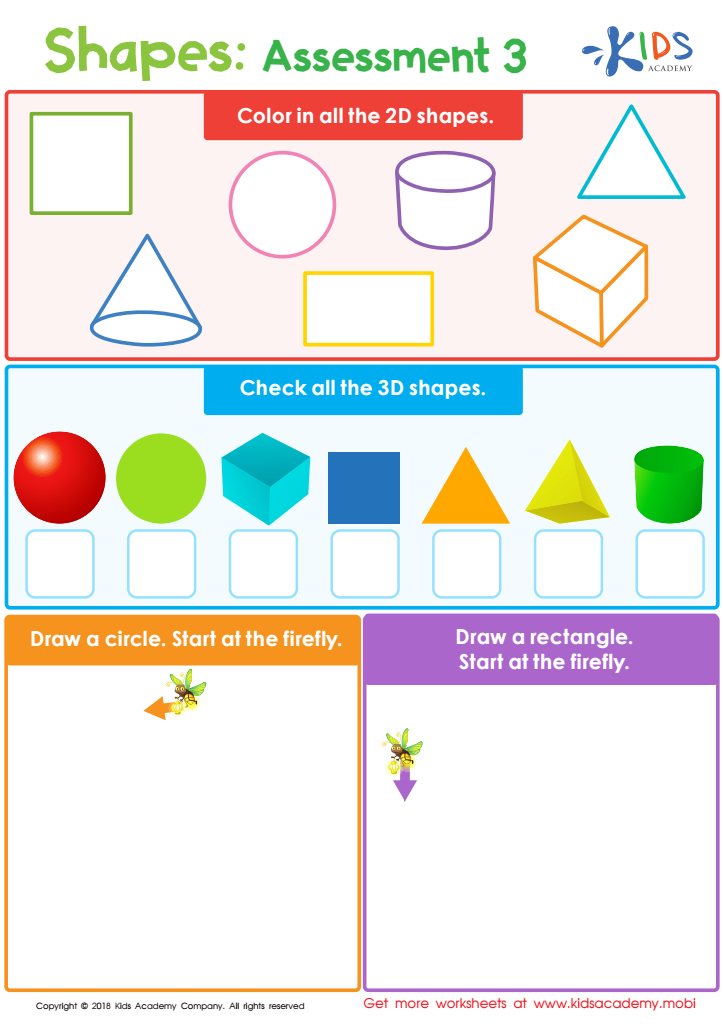

Shapes: Assessment 3 Worksheet
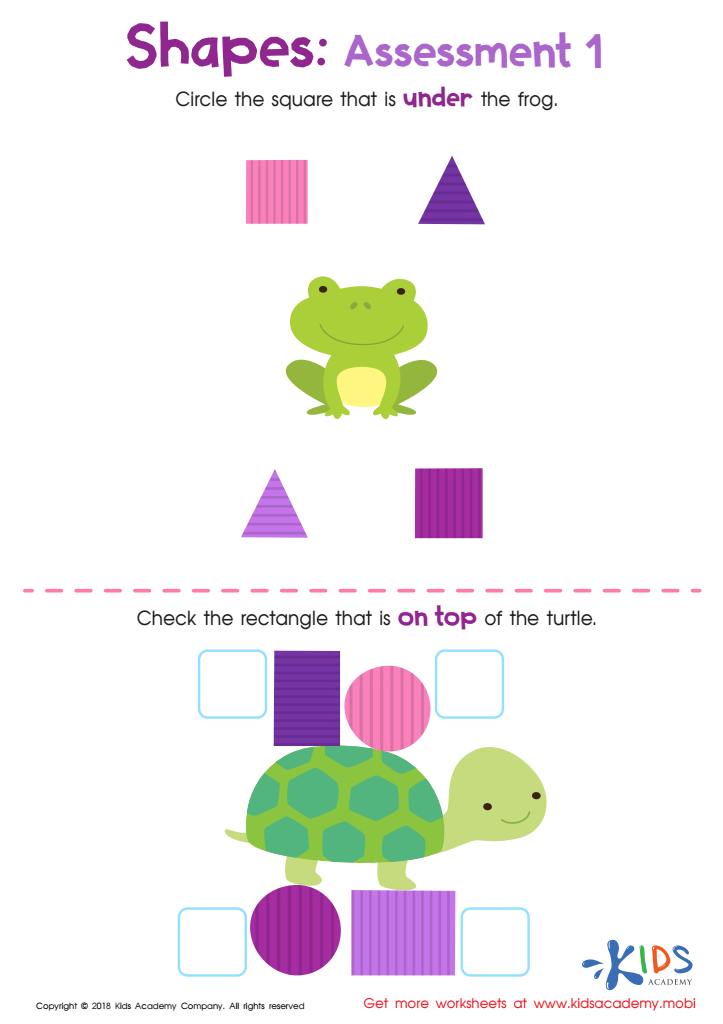

Geometry – Assessment 1 Worksheet
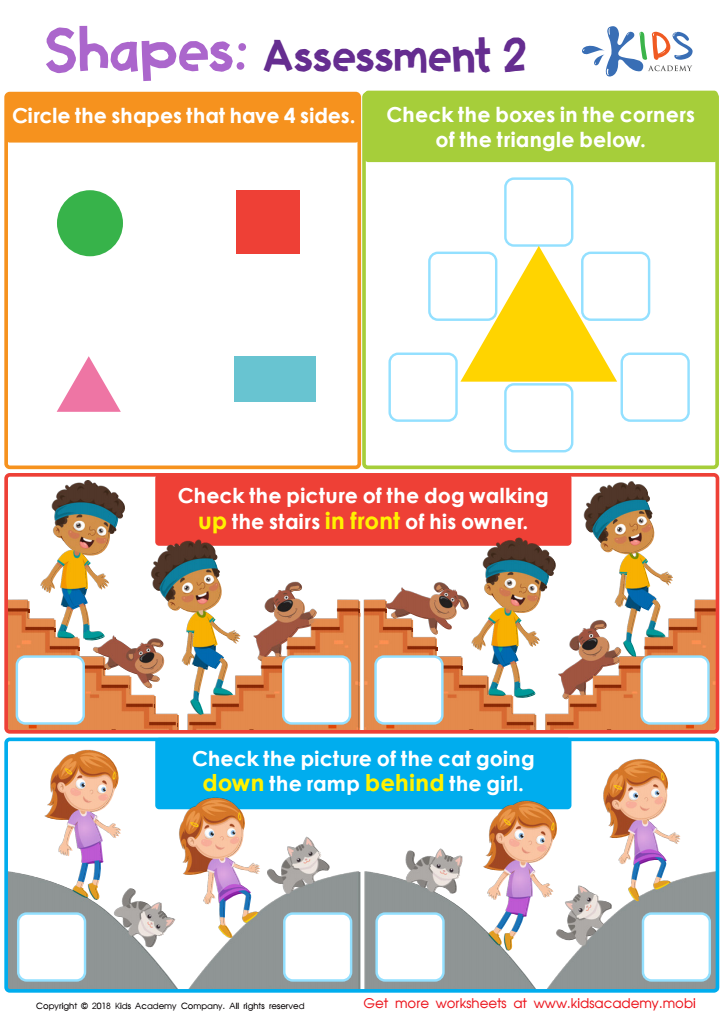

Shapes: Assessment 2 Worksheet
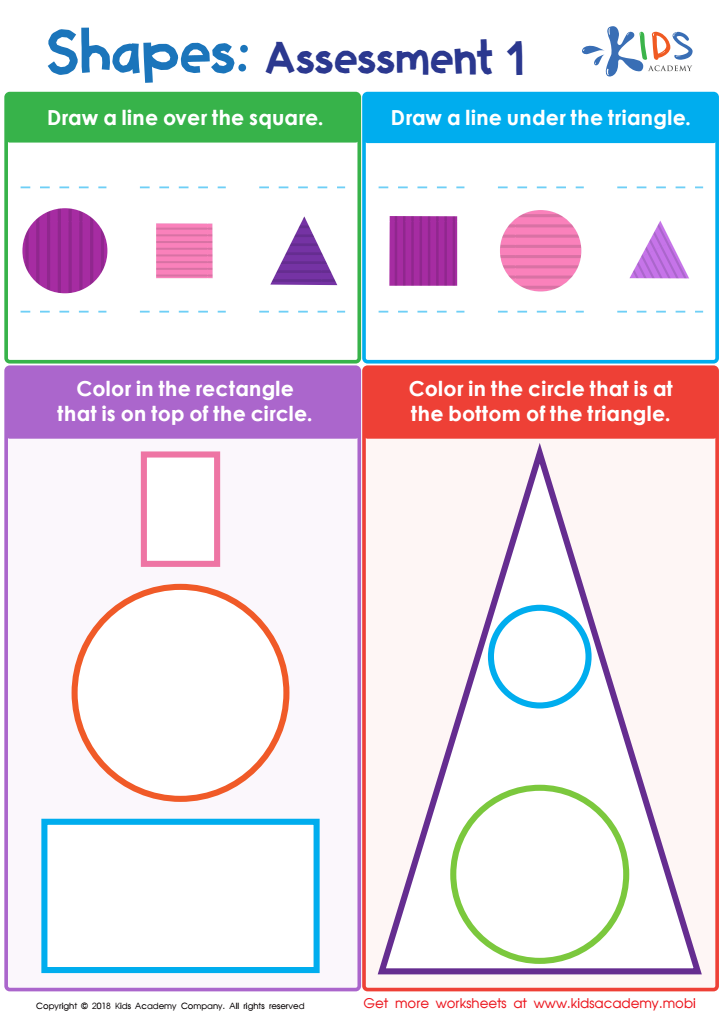

Shapes: Assessment 1 Worksheet
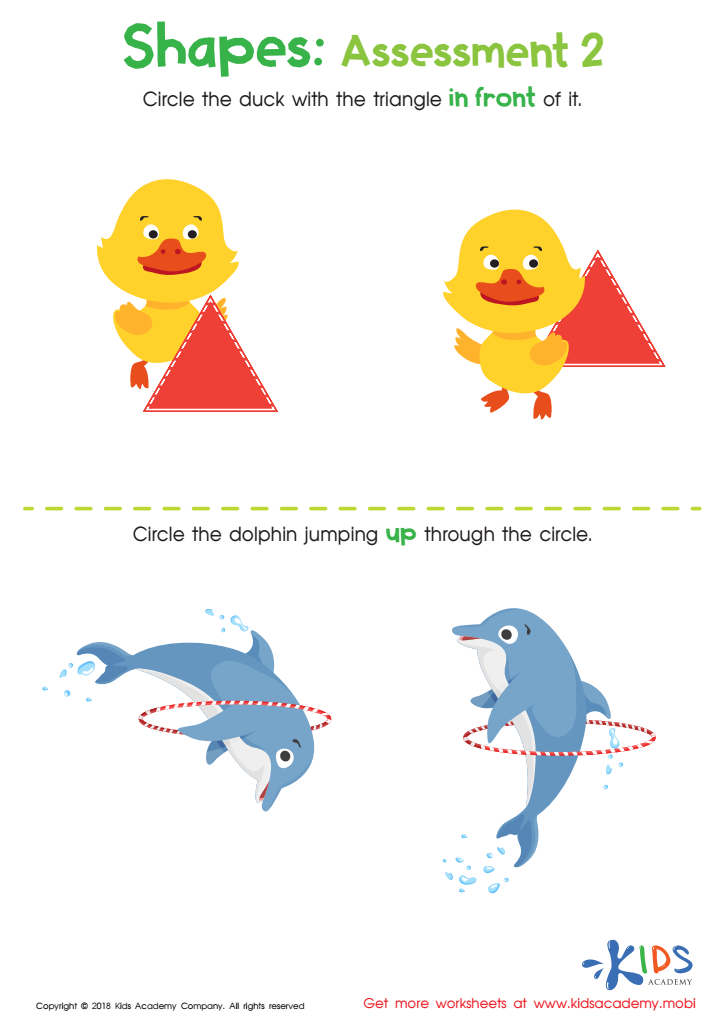

Geometry – Assessment 2 Worksheet
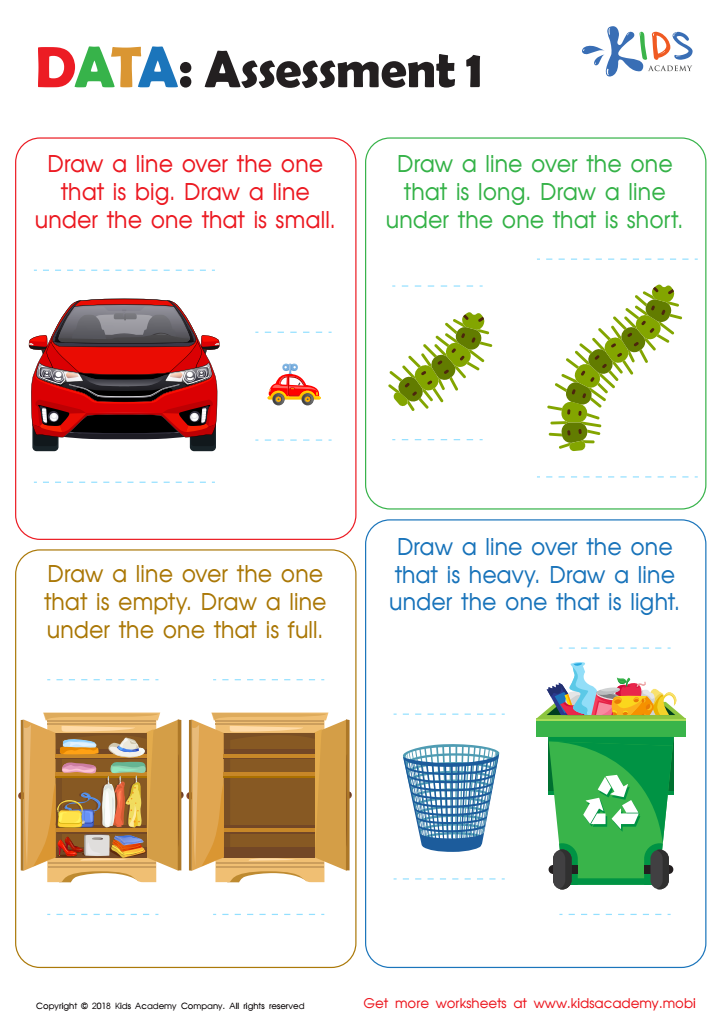

Data: Assessment 1 Worksheet
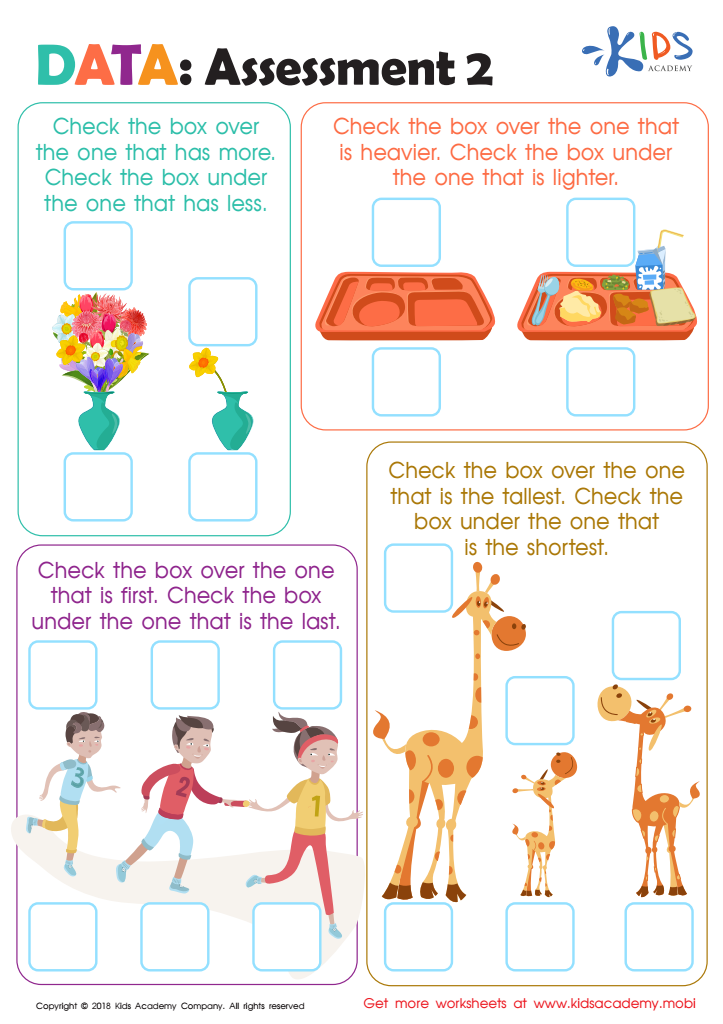

Data: Assessment 2 Worksheet
Geometry activities are essential for children aged 3-9 as they lay a strong foundation for critical thinking and problem-solving skills. During early childhood, children naturally explore their world through shapes and spatial relationships, making it a prime time to introduce geometric concepts. Engaging in geometry helps develop important cognitive skills, such as visual recognition, classification, and reasoning.
Activities involving shapes, patterns, and spatial awareness enhance fine motor skills as children manipulate objects, and they also promote language development as they learn to describe their observations. Understanding geometry fosters creativity, as children can experiment with shapes to create art, crafts, or even structures, embedding math within their tactile learning experiences.
Moreover, geometry is a cornerstone for later mathematical understanding. Skills like symmetry, measurement, and spatial orientation directly translate to higher-level math, science, and engineering concepts. Incorporating playful geometry activities encourages collaboration among peers, providing social skills alongside academic growth.
In summary, engaging young learners in geometry not only supports their immediate intellectual development but also prepares them for future academic challenges, ultimately shaping their confidence and appreciation for mathematics. Both teachers and parents play a crucial role in nurturing these skills through fun and interactive geometry activities.
 Assign to My Students
Assign to My Students




















